2025 Author: Jasmine Walkman | [email protected]. Last modified: 2025-01-23 10:18
Many studies show that fat is the main culprit for all diseases and afflictions of modern society. Likewise, even more experts are adamant that olive oil is the fat we should choose and consume daily. The reason for this is that in addition to excellent culinary and taste qualities, olive oil without a doubt it can be defined as a kind of medicine for the human body. Because many modern studies prove that the systematic use of olive oil protects us from a number of serious diseases, preserves our health and prolongs life.
History of olive oil
Olive oil is a vegetable fat that is extracted from the fruits of olive trees. This golden-yellow liquid has been present in people's lives for centuries - whether as a remedy, beauty product or culinary product. The cultivation of olive trees took place for the first time on the shores of the Mediterranean and dates back thousands of years. Olives and olive oil are deeply associated with the nutrition of the people in this area. In ancient Rome, olive oil was an integral part of everyday food. The Romans imported it mainly from Spain. Olive oil has always been highly valued and used in the anointing rituals of kings and priests.
Hippocrates advised people to use olive oil for personal hygiene. The Greeks also invented the first soap, mixing a few drops of olive oil, talc and ash. Hippocrates, Pliny, Galen and a number of other ancient healers noted the invariable properties of olive oil, calling it magical.
Composition of olive oil
The olive oil contains between 55 and 80% monounsaturated oleic acid, between 4 and 20% omega-6 fatty acids and up to 2% omega-3 monounsaturated fatty acids. It also contains about 15% saturated fat, vitamin E, which plays an important antioxidant role. Other vitamins found in olive oil are A and D. It is rich in a number of minerals - calcium, potassium, magnesium, carotene.
In 100 g of olive oil are contained 85 g of unsaturated and 15 g of saturated fatty acids, as well as 900 calories.

Types of olive oil
There are different types of olive oil on the market, and the undisputed champion in terms of useful qualities and impact on the human body remains cold pressed olive oil. It is not subjected to any heat or chemical processing. It is obtained, as the name suggests, from the cold pressing of high quality olives. This type of olive oil is pure, unadulterated and useful in every way. Cold pressed olive oil, known as Extra Virgin, contains two types of valuable fatty acids in an optimal ratio - 80% oleic acid and 10% linoleic. It is also a source of vitamins A and E, known as the "vitamins of eternal youth".
Cold pressed olive oil is low in acidity. It does not contain more than 1% acids (ie 1 gram of acids per 100 grams of fat). This is duly noted by each label manufacturer. In its raw form, cold-pressed olive oil is completely absorbed because it is very close to the lipids in the human body. For comparison: sunflower oil, for example, is absorbed only up to 83%, and sesame oil, which is popular in Chinese cuisine, is absorbed only up to 57%. Oleic acid, which is contained in cold-pressed olive oil, protects the heart and arteries. Cold pressed olive oil supplies our body with substances that oppose the oxidative processes in it. In parallel, it maintains cell membranes in optimal condition.
The disadvantage of cold-pressed olive oil lies in the fact that it should not be heated, because then it loses some of its properties. It is recommended to use it mostly for salads. If we decide to cook with olive oil, we must use pure olive oil again, but with the indication "100%" on the label. And this olive oil is relatively pure, but it can and should be used in any type of heat treatment.
The next kind olive oil is Virgin. It is obtained after the second or third pressing of the olive puree, after the first quality olive oil has already been extracted. Like the previous type of olive oil, it is the only product of cold pressing technology.
Pure olive oil - also known as olive oil for industrial use. It is refined by heating, high pressure and the use of various solvents. During the technological process it loses much of its natural taste, which is why it is used only for frying, but not for flavoring salads.

Selection and storage of olive oil
When you buy olive oil, the first and most important step is to look at the date of manufacture. The shelf life in metal packaging is from 3 to 4 years, and in bottles - up to 1 year. Olive oil is very easily counterfeited, so you need to know when real olive oil stored at a temperature of 0 degrees, it becomes thicker and darker until the other fats change their state.
Store olive oil in a dry and dark place at a temperature not exceeding 20 degrees. The most suitable for its storage are glass containers. Olive oil, which is produced in the period from November to January with long storage can lighten. This should not bother you, because it is completely normal.
Olive oil in cooking
Olive oil is one of the main ingredients of the world-famous Mediterranean cuisine. Olive oil is used to flavor a number of dishes, salads, cold appetizers. Used for frying and baking. Extra virgin and virgin olive oil are ideal for dressings and sauces, while pure can also be used for frying. Use olive oil, whenever you want to give a thick note to the dish, no matter what it is - fish, meat or vegetables. Daily use of olive oil is much more beneficial to health than ordinary oil.

Properties of olive oil
Healing properties of olive oil are determined by its composition. Olive oil is rich in polyunsaturated fatty acids and as a feature - rare monounsaturated essential fatty acids, as well as the so-called. unsaponifiable lipids. The unsaponifiable group of nutrients in olive oil consists of: terrols, which block the absorption of dietary cholesterol by the intestines; tocopherols, which have antioxidant properties; terpenes, which promote the secretion of bile acids; carotene, which also has antioxidant properties; phospholipids - the main components of cell membranes, in particular the membranes of neurons; estrones - estrogenic hormones; vitamin A, known as an antioxidant; calciferol (vitamin D), which enhances the absorption of calcium in the intestine; flavonoids, which are involved in the redox reactions of the body; chlorophyll, which gives the oil its beautiful green color and stimulates the growth of cells, in particular erythrocytes and leukocytes.
Benefits of olive oil
Olive oil has incredibly many beneficial effects on the human body. It has been proven that the use of 3 tablespoons of olive oil a day helps to reduce the risk of rheumatoid arthritis 2.5 times. It has been found that olive oil has a healing effect in the treatment and prevention of cardiovascular disease. With its help, the level of "bad" can be significantly reduced and "good" cholesterol can be increased. Olive oil helps to reduce the intensity of free radical oxidation, to normalize blood pressure, to increase the elasticity of arterial walls and to reduce the risk of thrombosis.
According to American scientists 1 tablespoon olive oil a day in parallel with reducing the use of other fats, helps reduce the risk of breast cancer by 45%. The research was done for 4 years. More than 60,000 women aged 40 to 76 took part in them. Olive oil is able to preserve our youth longer by slowing down the aging process in the body.

Experiments show that mice that are fed with olive oil, have lived longer than those fed sunflower or corn oil. The same is observed in humans, as evidenced by the inhabitants of the island of Crete. They are popular with the production and daily use of olive oil, which makes their life expectancy one of the highest in the world.
Garnish with olive oil
In addition to a number of beneficial properties for health, olive oil is one of the best guardians of natural beauty. Due to the presence of a large number of antioxidants in it, olive oil has been used in beauty products since time immemorial. In ancient times, women brushed her hair their bodies with olive oil, believing it to be a true source of youth.
It can be used both on hot summer days and in the cold winter months because it soothes the skin. Olive oil is the basis of a number of cosmetic products because it has a natural ability to moisturize, strengthen and nourish. It gives shine and elasticity. For this reason, it can be used alone or in various combinations for each part of the body.
Recommended:
Olive Oil Protects The Liver
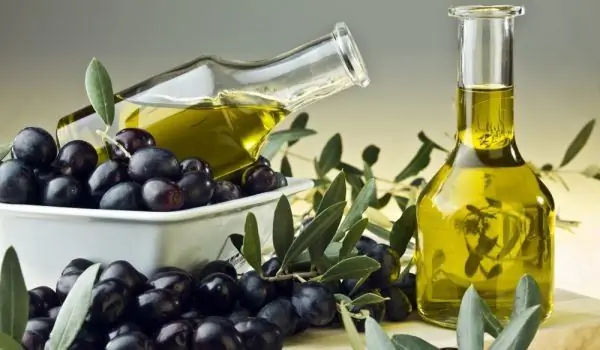
Due to its numerous health benefits, olive oil is rightly considered a real gift from nature. It is recommended by both doctors and folk medicine for the prevention of cardiovascular disease, skin and hair. However, new studies attribute even more unsuspected benefits to olive oil.
How To Store Olive Oil And Vegetable Oil
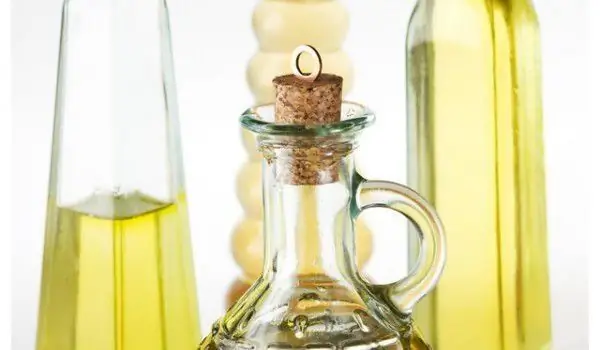
The oil is stored quite a long time thanks to its factory packaging. It is sold with a tightly closed lid and thanks to this it can retain its qualities for two years. Oil bottles should be stored in a cool dark place. It is better to store oil that is sealed in glass rather than plastic bottles.
Olive Oil Versus Rapeseed Oil: Which Is Healthier?
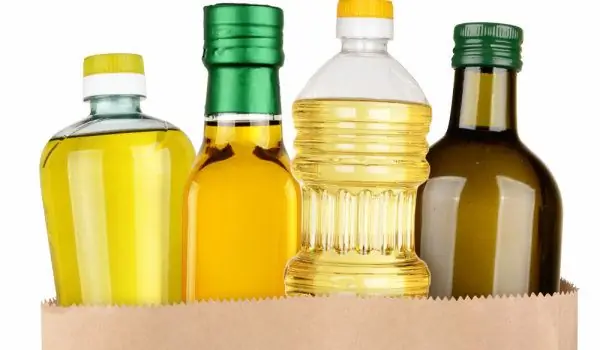
Rapeseed oil and olive oil are two of the most popular cooking oils in the world. Both are touted as heart healthy. However, some people wonder what the difference is and what is healthier. What is rapeseed and olive oil? Rapeseed oil is produced from rapeseed (Brassica napus L.
Castor: Corn Oil Was More Useful Than Olive Oil
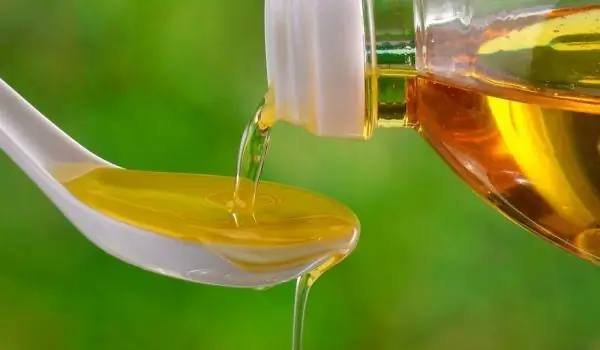
Corn oil is proving to be more valuable for health than the olive oil, which is said to be the most useful fat, reports Eurek Alert. Corn oil lowers cholesterol levels more successfully than cold-pressed olive oil, say researchers who conducted the study.
Why Is It Good To Replace Oil With Olive Oil?
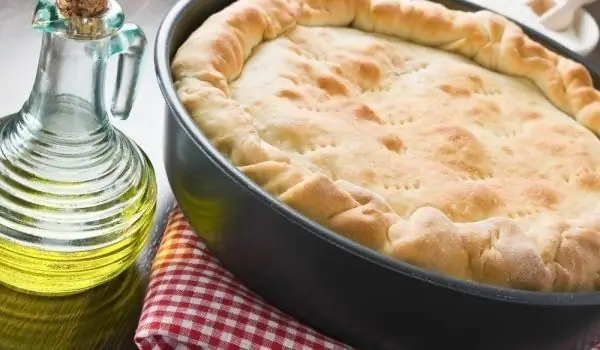
Increasingly, nutritionists and all other health professionals recommend that we stop using oil and replace it entirely with olive oil. Unfortunately, the price of olive oil is much higher than that of ordinary oil, and for this purpose we need to find out if this is really necessary.

